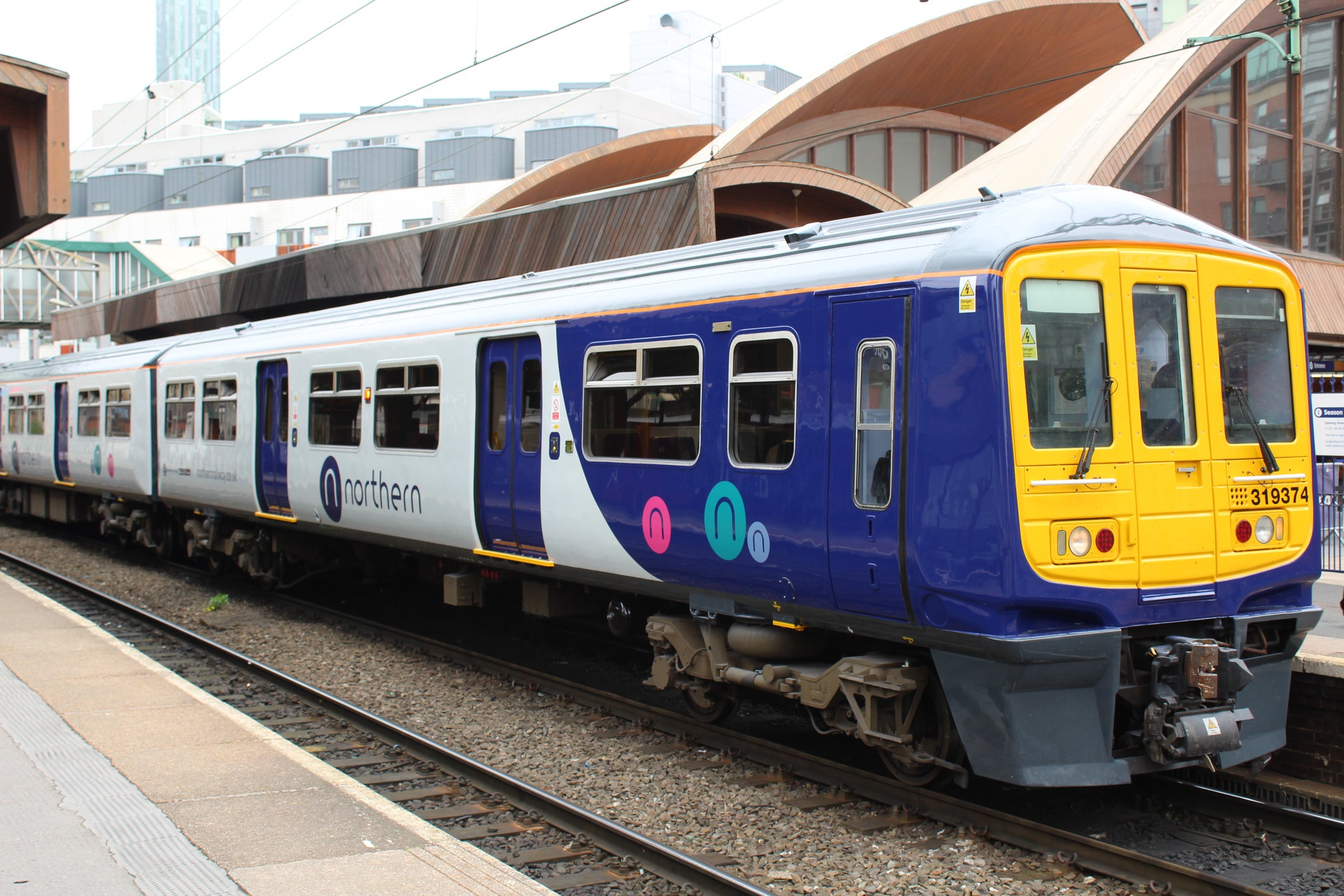Northern rail passengers are right to be angry at London ministers for abandoning them
Old Pacer trains, built from the body of buses, were intended to be merely a short-term solution to a shortage of rolling stock in the 1980s. But there are still dozens of them in use on the Northern franchise


Your support helps us to tell the story
From reproductive rights to climate change to Big Tech, The Independent is on the ground when the story is developing. Whether it's investigating the financials of Elon Musk's pro-Trump PAC or producing our latest documentary, 'The A Word', which shines a light on the American women fighting for reproductive rights, we know how important it is to parse out the facts from the messaging.
At such a critical moment in US history, we need reporters on the ground. Your donation allows us to keep sending journalists to speak to both sides of the story.
The Independent is trusted by Americans across the entire political spectrum. And unlike many other quality news outlets, we choose not to lock Americans out of our reporting and analysis with paywalls. We believe quality journalism should be available to everyone, paid for by those who can afford it.
Your support makes all the difference.When Northerners demanded that London redistribute more to the regions, they probably didn’t have the redistribution of rail commuter misery in mind. Be that as it may, with the new timetables fiasco Mancunians have had a taste of the frustration that passengers of Southern rail have been feasting on for several years now.
Over the past month almost a third of Northern trains have been either late, very late or cancelled. On the TransPennine “Express”, run by First Group, the performance has been even worse. Not so much Northern Powerhouse as Northern Powercut.
We will have to wait to see what the inquiry by Professor Stephen Glaister, ordered this week by the transport secretary Chris Grayling, finds about where responsibility for this particular mess lies. As with Southern recently, there have been attempts by the franchise operators to blame the public track maintenance body, Network Rail. But, again as with Southern, there also appear to have been problems with driver availability, pointing to managerial incompetence.
Regardless, the detail of the cock-up should not distract us from larger and longstanding issues of deficient transport infrastructure in the North. There’s been a lot of talk from ministers in recent years about their commitment to investment in transport in the region, but it’s pretty hard to see much evidence of it in the official figures. According to the IPPR North think tank, pipeline transport infrastructure spending per head (both public and private) in London (£4,155) is still set to be two-and-a-half times greater than that in the North (£1,600).
One of the reasonable criticisms of the planned new High Speed 2 rail line between London and Birmingham (and then supposedly to be extended to Manchester) is the opportunity cost. Why, ask Northerners, are those many billions of pounds not being spent first on upgrading the threadbare existing rail connections in their region? Why is there so little electrification? Why does it take an hour to travel the 45 miles between Manchester and Leeds?
Rattling and uncomfortable old Pacer trains, built from the body of buses, were intended to be merely a short-term solution to a shortage of rolling stock in the 1980s. But there are still dozens of them in use on the Northern franchise. The franchise holder, Arriva, has promised that it will finally scrap them by 2020. This is like a school pledging to get rid of its abacuses and introduce calculators. We shouldn’t be grateful, but furious at the fact that they have lasted so long.
“The North needs decades of investment, not just a quick resolution of the current chaos as more staff are hired and new timetables bed in,” says Tom Forth, of the Open Data Institute Leeds. Forth also stresses that political control is fundamental, saying northern mayors and local councils, rather than Whitehall, should have authority over the region’s railways, just as Transport for London oversees most services in the capital.
He’s right that political choices are the core of the problem. In 2012, the Department for Transport judged rail line electrification a strategic priority for good efficiency and environmental reasons. The 2015 Conservative election manifesto promised electrification of the Midland mainline to Sheffield and tracks in the Lake District.
But shortly after the vote the government announced a “pause” to these projects, along with the electrification of the TransPennine Express. And last year Grayling said that they had all been scrapped, informing the House of Commons that this was because new “bi-mode” electric/diesel switching trains made electrification unnecessary. Yet the National Audit Office revealed in March this year that the real reason for the cancellation was money, not some marvellous new technology.
Network Rail, reclassified as part of the public sector in 2014, could no longer fund the projects within its allotted budgets. So rather than expanding that budget (at a time when the British state could still borrow at record low interest rates), Tory ministers simply reneged on their promises to the region and fed the country a bogus explanation.
Northern rail passengers are rightly angry at this latest fiasco. But they should be even angrier at the long history of neglect, underinvestment and duplicity from ministers in London.
Join our commenting forum
Join thought-provoking conversations, follow other Independent readers and see their replies
0Comments